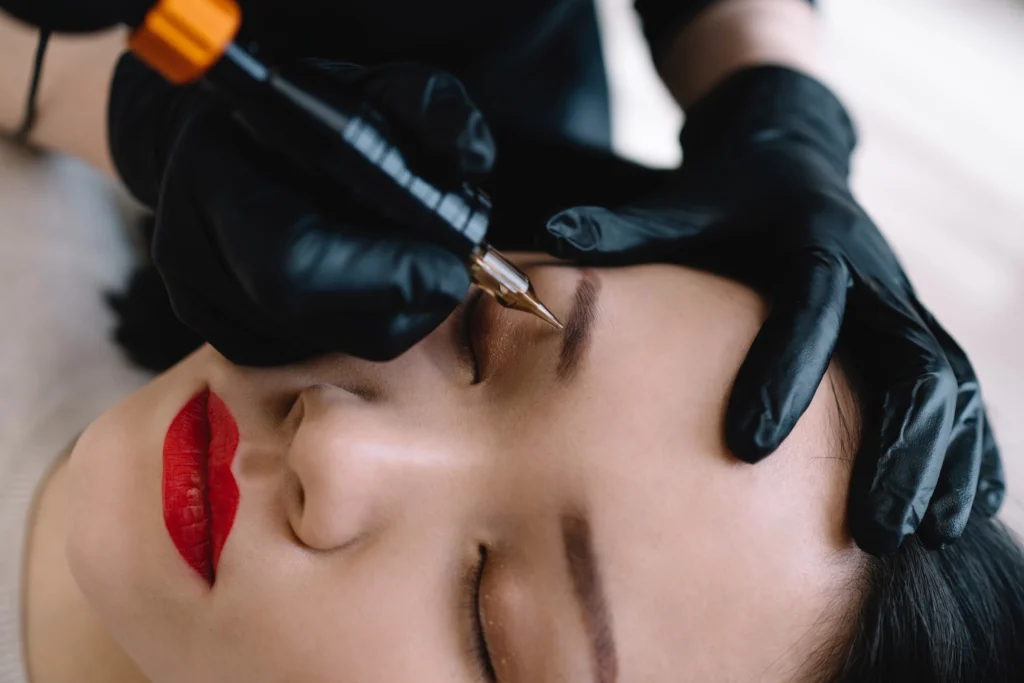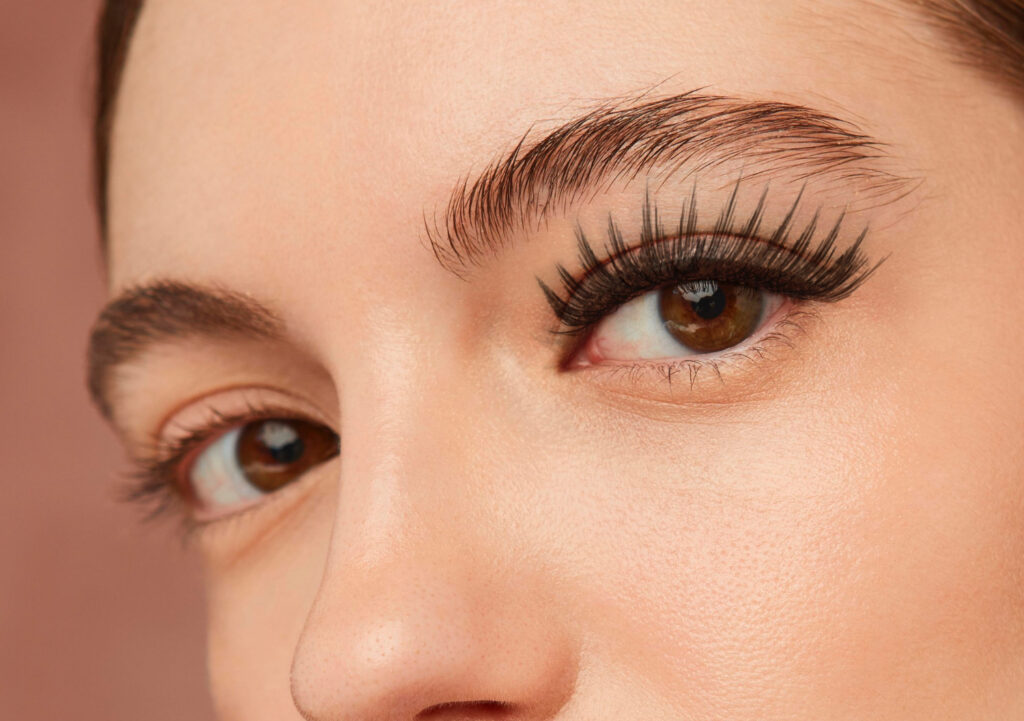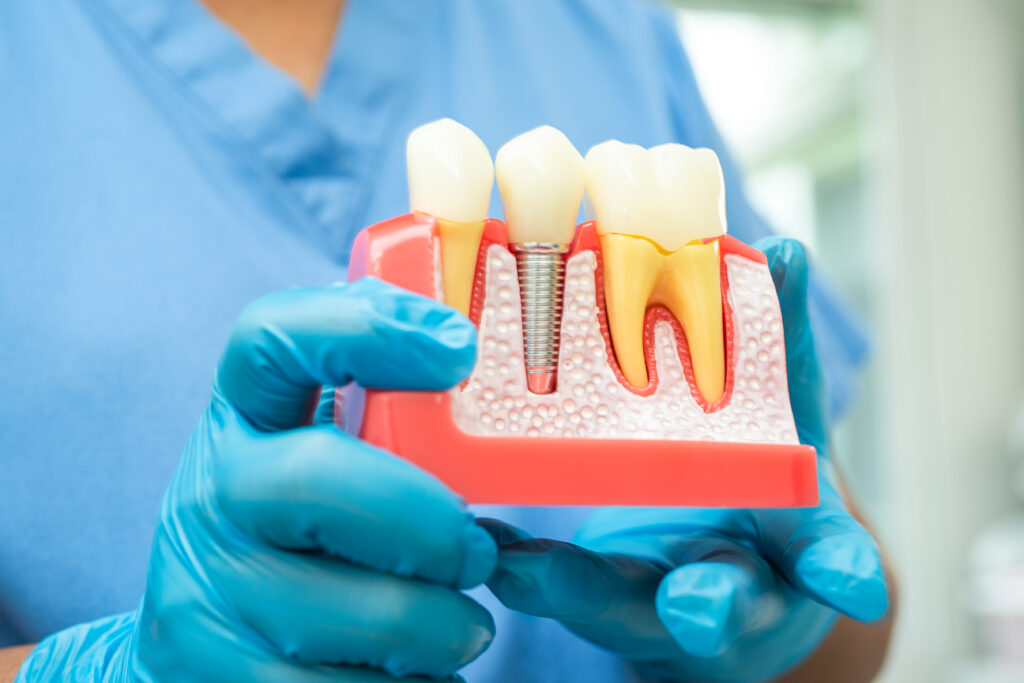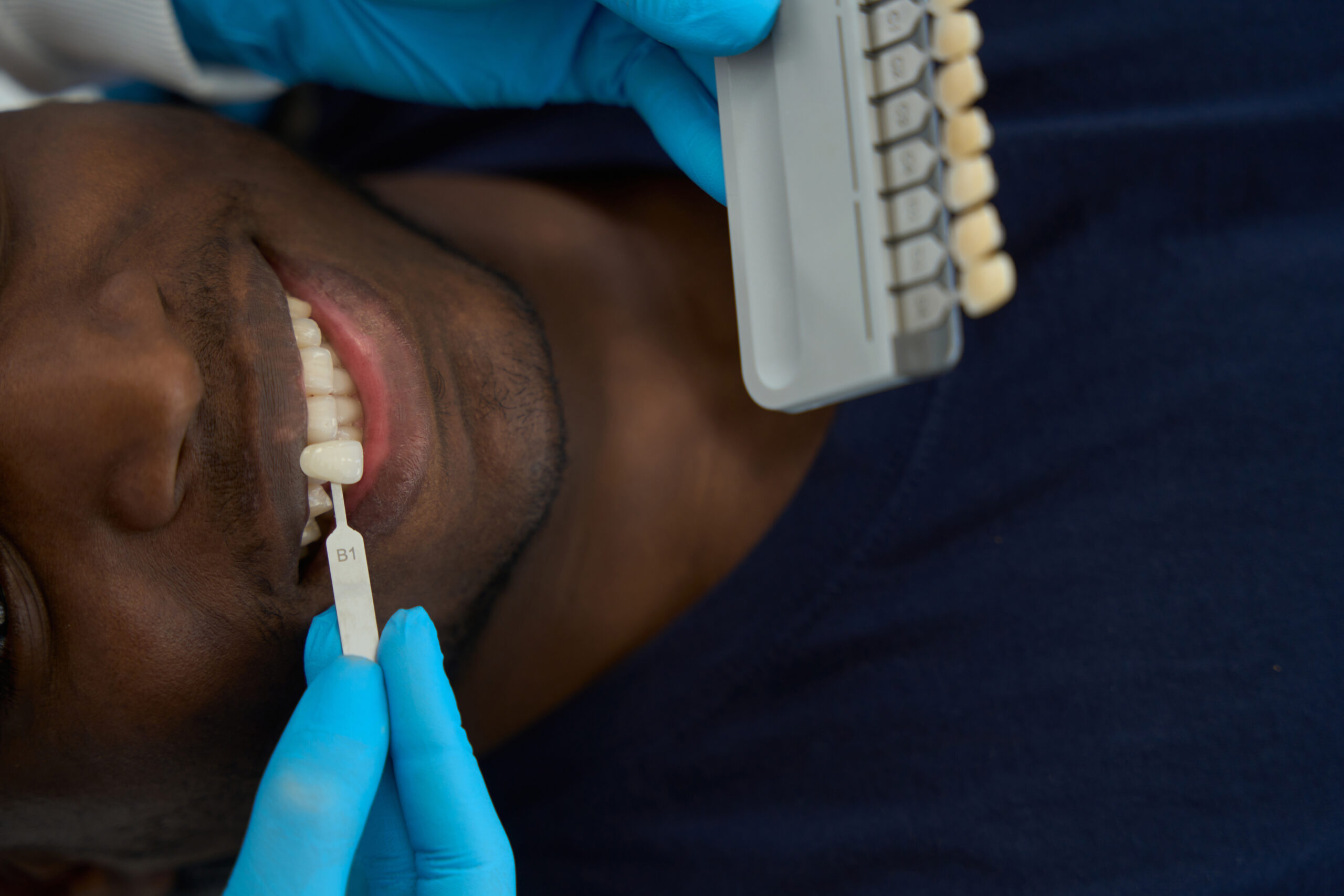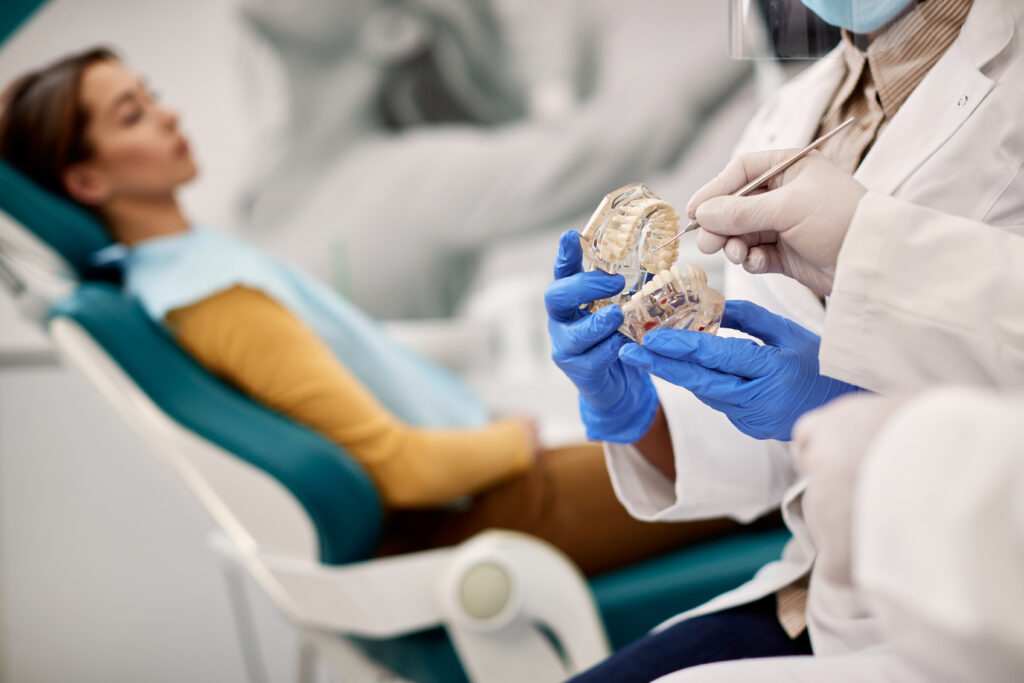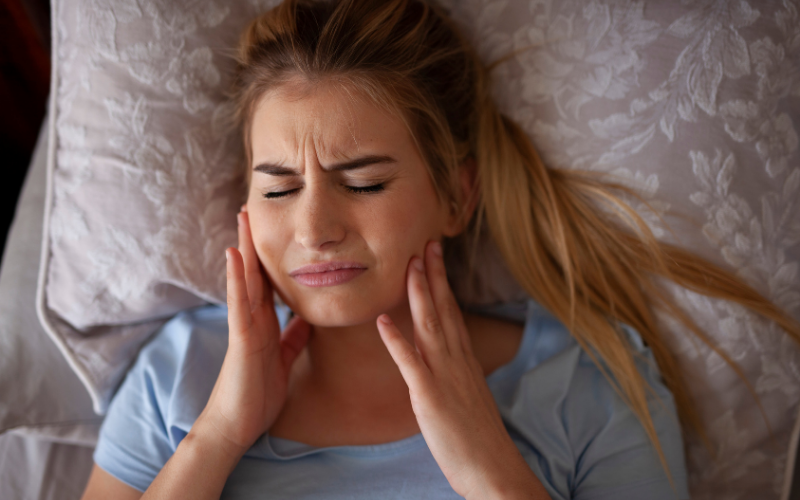
Bruxism — colloquially known as teeth grinding — can severely damage your dental health when not dealt with. Some people grind their teeth during the day, but since it’s often unconscious, many do it while sleeping as well.
In addition to wearing down your teeth, bruxism can give you headaches and make your jaw sore.
To alleviate these issues, here are some tips to stop grinding your teeth.
-
Get a Mouthguard or Bite Splint
One of the most effective ways to stop nighttime teeth grinding from damaging your pearly whites is to get a nighttime mouthguard. These are occlusal splints that you slip over your teeth before climbing into bed.
If you begin clenching your jaw, the splint stands in between your upper and lower teeth, preventing grinding and reducing jaw strain.
Over-the-counter mouthguards are less expensive than custom-fit mouthguards you get from an orthodontist. However, they may not be as comfortable or fit as well. Additionally, they don’t work well for severe bruxism cases.
Overall, plastic mouthguards are decent if you find a soft plastic one and you only have minor bruxism issues.
-
Massage Your Jaw Muscles
Oftentimes, we clench our jaw chronically throughout the day. So much jaw clenching makes the jaw sore, but can also cause you to grind your teeth.
If you ever notice that you’re clenching your jaw, take a moment to relax your face and massage the jaw muscles. Doing so will help you release tension from the area, reducing the occurrence of teeth grinding.
-
Practice Mindfulness
You may be clenching your teeth constantly throughout the day without even realizing it. Do your best to catch yourself grinding your teeth and consciously relax your muscles. You could even consider setting a phone notification that reminds you every so often — such as every hour — to relax your jaw.
You may notice the clenching happens at certain times of the day or while you’re doing specific activities — especially those that are stressful. Once you know this, you’ll know when to pay attention to your jaw.
-
Stress Reduction
Stress often plays a big part in teeth grinding. Clenching muscles is a natural way to respond to stressful events, but chronic stress can keep your jaw clenched for a long time.
To minimize stress, eat a balanced diet, get regular exercise, and get plenty of sleep. Try stress management and reduction techniques such as meditation, yoga, or talk therapy to actively fight stress.
-
Visit Your Dentist
Lastly, make sure you visit your dentist regularly. They can spot signs of bruxism and recommend the best course of action.
Similarly, if you notice tooth pain or sensitivity, it may be a result of teeth grinding. Visit your dentist ASAP if that’s the case.
If you’re dealing with bruxism, Absolute Smile is happy to help you solve this quiet yet frustrating problem. We’ll check out how your teeth are doing, then recommend a bite splint or other measures if we deem them necessary to protect your teeth. Contact us today to learn more.


